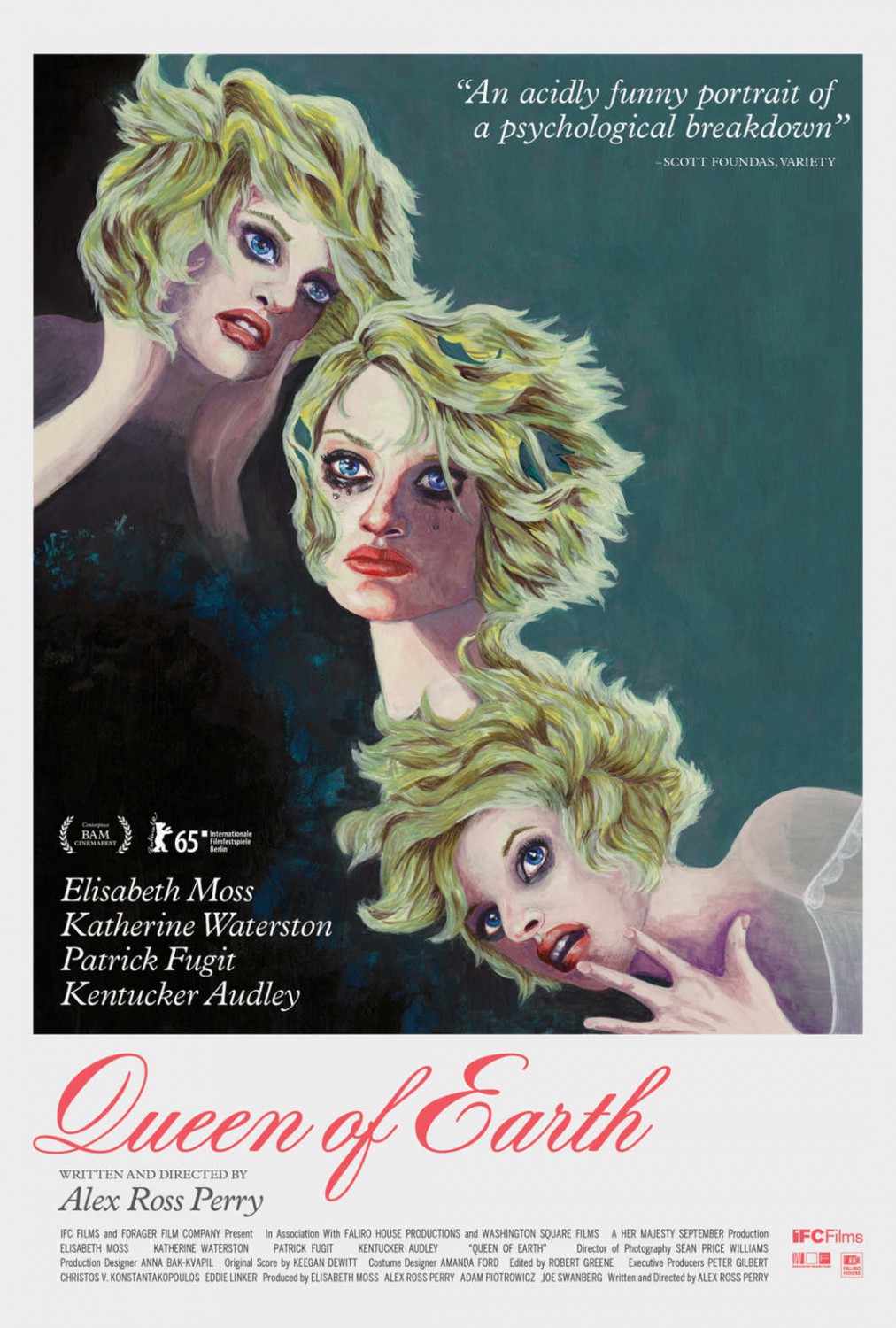
Alternate title: Black Swan-berg-man?
Alex Ross Perry garners an awkward sort of critical acclaim — the kind that sounds like a coded warning. I’ve learned the euphemisms for similar filmmakers: “acidic wit” = overscripted; “biting comedy” = zero laughs; “like X meets Y” = intellectual masturbation. Like Infinite Jest meets Ulysses, even glowing praise comes across as a sort of backhanded humblebrag. “He’s the literary voice of our generation — oh, and 99% of you won’t finish the book.”
I’m not sure how many pleasant surprises it will take for me to forget Greenberg and learn to trust again. Because what blew me away about Queen of Earth was its sheer immediacy. Absent is the preciousness that made my love of Listen Up Philip come with a disclaimer; if there’s winking irreverence or “comedy” to be had here, it went miles above my lowbrow head. I saw something earnest and visceral, and it stuck.
Queen of Earth is a gnawing psychological thriller about depression and the perils of ego, helmed by some of the best performances of the year. Elisabeth Moss steals the show as mentally-unraveling Catherine-with-a-C, but Katherine-with-a-K Waterston is possibly more heartbreaking in her portrayal of Virginia. There’s a constant struggle between empathy and resentment in her, a tug-of-war between tough love and “tough luck.” When does a frostbitten relationship turn gangrene? When do you give up on warmth and pick up the scalpel?
Catherine’s depression could have been played as grating; here, it simply terrifies. It never needs to do anything terrifying, it only needs to be the right amount of off: this off-kilter word choice, that offbeat smile. The eerie soundtrack and 16mm look only heighten the unease. Loose-scripted naturalism giving way to tight, romantic chaos, like Aronofsky directing a Joe Swanberg movie. It’s haunting because it breaks the rules.
In one memorable scene, the friends trade tales of heartbreak in long, unbroken monologues. Typically this would be an intimate moment, all eyes on the speaker. Instead, the camera lingers on the listener; the wide-eyed stare of a mind to busy rehearsing its response to actually hear you. It’s not a flattering look. Both women feel smothered and, paradoxically, neglected. That’s the trouble with other people’s stories: you’re never the protagonist.